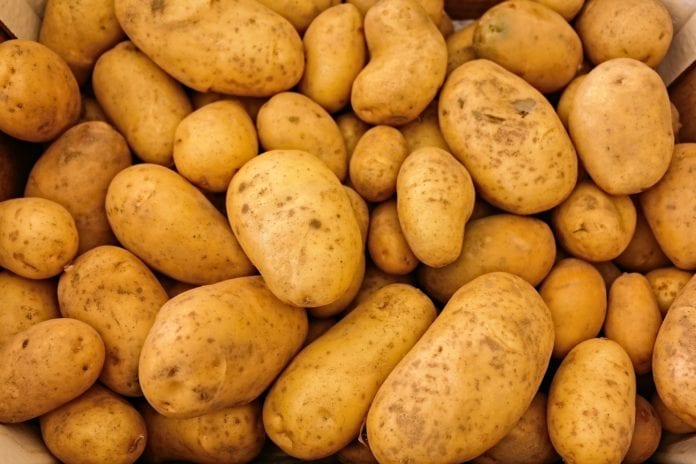Researchers have been able to predict the presence of over 350,000 harmful gene variants that are restricting effective potato breeding, a May 11 news release said. The new predictive method has shown a way to better select parents for new potato varieties.
A team of international researchers led by Yaoyao Wu of the Chinese Academy of Agricultural Sciences studied the nightshade family, of which the potato is a part. Through this research, the team hoped that by fully understanding the plant’s genetics, they would better be able to breed new varieties of potato that are resistant to real and potential environmental challenges arising from the planetary emergency, the release said.
“Potato breeding is very challenging because it is a clonally reproduced crop, so new potatoes are grown from pieces of old ones,” Sandra Knapp, with the Natural History Museum and a researcher on the study, said in the release. “This means they have accumulated lots of deleterious mutations, which impact their health and growth and cannot easily be gotten rid of using traditional methods.”
The release noted the other complicating factor is that potatoes are tetraploid, meaning they have four sets of chromosomes, two more than most plants and animals. Potatoes are also self-incompatible, meaning they cannot self-pollinate, the usual method for creating new varieties, so traditional breeding methods that work on other organisms are difficult to deploy in potatoes.
The first step to produce better potatoes is to understand the state of its genetics, the release said. To do this the team used a technique known as genomic evolutionary rate profiling (GERP), which looked for evolutionarily constrained areas in a plant’s genome to map and predict deleterious, or harmful, mutations in important regions for plant survival.
“We helped the team to understand the relationships between the members of the nightshade family, grounding their research in genetic and evolutionary reality,” Sandy said. “Understanding the family tree of these plants is fundamental to this project, because without it, all of the genetic predictions come undone.”
Through profiling, the team detected the presence of 367,499 deleterious gene variants in the potato genome. This information could be used to create inbred lines and then start breeding new potato varieties, the release noted.
The team was surprised to find that to breed more resilient potatoes, less vigorous, slower growing parents were the best option, the release said. Usually. the most vigorous plants are selected by plant breeders as parents for these inbred strains.
“It’s counterintuitive to use less vigorous potatoes to create better parental lines for future potato breeding, but it’s a really interesting finding,” Sandy said. “These new prediction methods could have the potential to really accelerate potato breeding.”
The findings were published in the journal Cell.
Related Articles
Are Diploid Varieties the Future of Potatoes?











